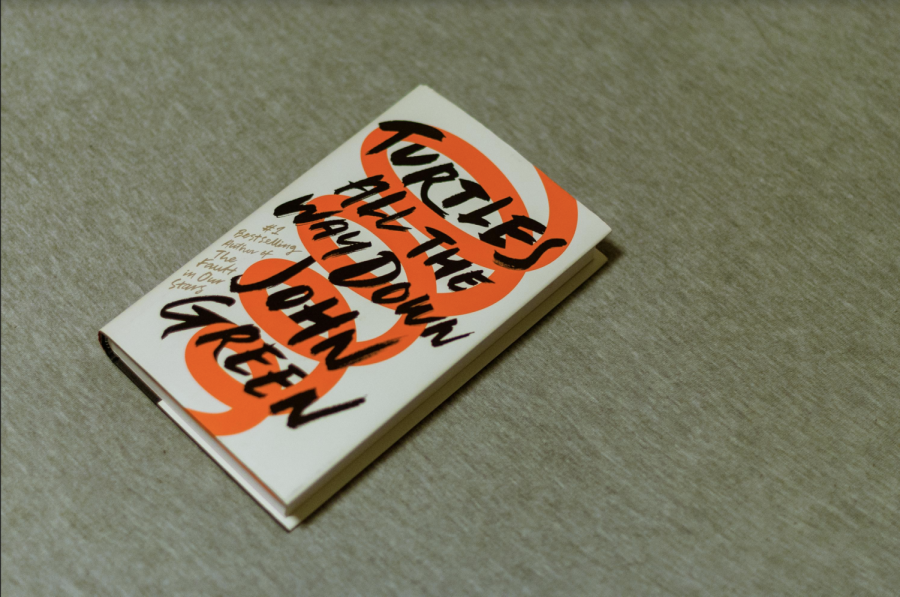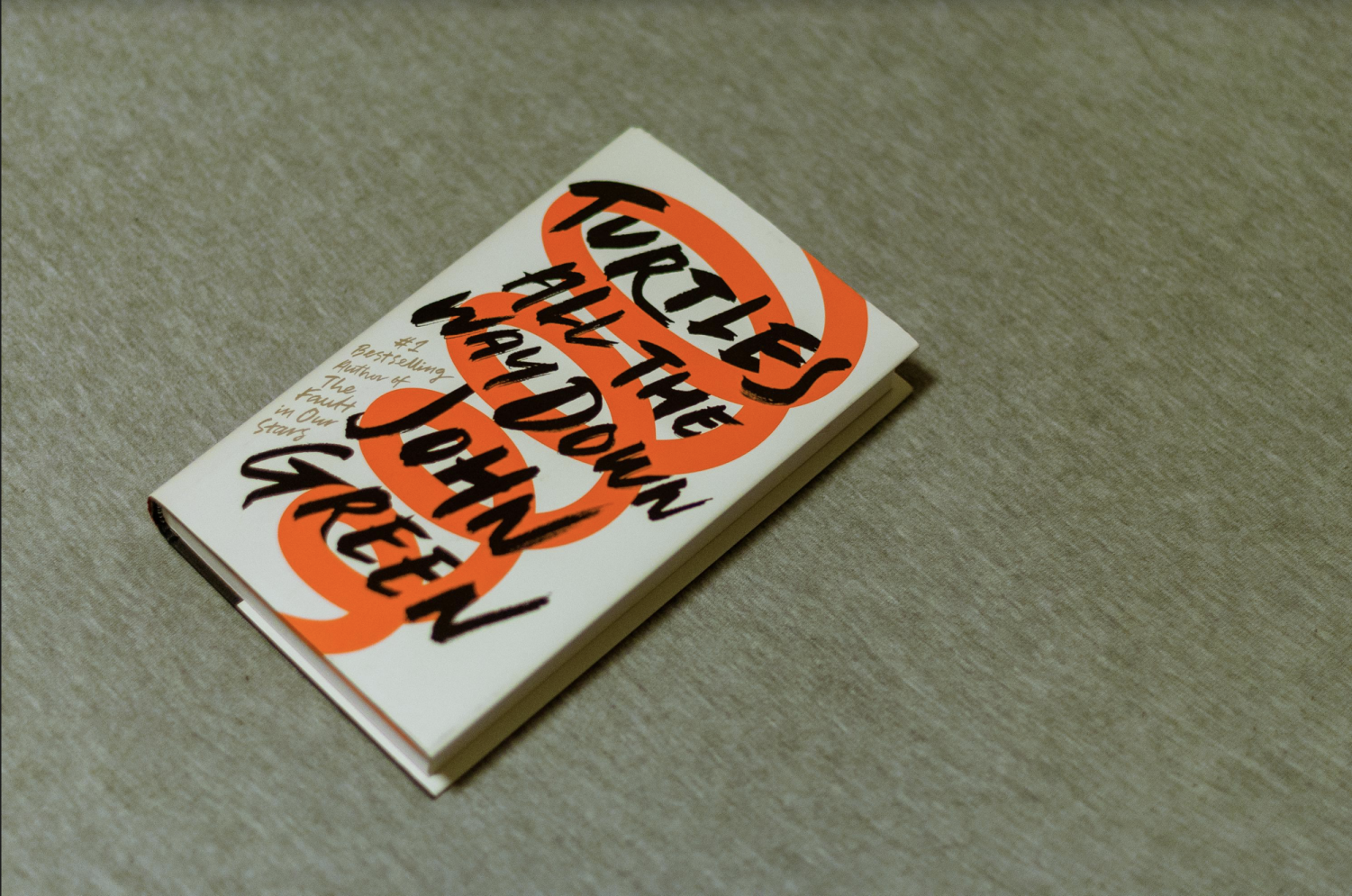Literature Encourges Empathy for Mental Health

Literature Encourges Empathy for Mental Health
Books, such as John Green's "Turtles All The Way Down," help readers to understood mental illness. (Flickr)
Books, such as John Green's "Turtles All The Way Down," help readers to understood mental illness. (Flickr)
February 20, 2019
Filed under Culture, Mental Health Column
Hang on for a minute...we're trying to find some more stories you might like.
Email This Story
As C. S. Lewis said, “We read to know we are not alone.” Literature has been a refuge for so many since the very beginning. Reading evokes a sense of empathy with a magnitude that few other media outlets allow. By becoming fully engrossed in the story, we often put ourselves completely into the shoes of the narrator or protagonist. This enhances understanding and compassion toward experiences that we may not have had ourselves. In regards to mental health issues, literature gives those not afflicted, a deeper understanding of what it is like to live with these illnesses. For those who do struggle with mental illness, reading has assured them that they are, in fact, not alone.
Positive and accurate representations of mental health in literature can be beneficial for readers. Reading books already has been proven to promote a stronger sense of empathy. In one study focusing on this impact from the Language Arts Journal of Michigan, the researchers explained that “the world of literature encourages us to become others in imagination, and this may be one of the most benign means of improving one’s abilities in the social domain.”
When it comes to mental health, which is often not understood properly, this empathy can lead to awareness and help combat stigmas which inhibit progress. Potentially, this awareness can contribute to more options for treatment, as it allows the readers to understand the real struggles of those battling mental illness, and the need for available assistance.
One of the most prominent examples of the representation of mental health in literature in the past few years was the release of “Turtles All the Way Down” by John Green. Author of the ultra-popular and mainstream favorite “The Fault in Our Stars,” Green opened up about his struggles with Obsessive Compulsive Disorder (OCD) while promoting his latest novel.The protagonist of “Turtles All the Way Down,” a young woman named Aza also has OCD and the book includes several poignant scenes in which she is directly faced with the difficulties of the condition.
The novel received much praise from mental health professionals for its representation of OCD. The first person narrative format of the book allows readers to get a full picture of what goes on in the mind of an individual with OCD. The spiral illustration on the book’s cover even gives a direct nod to the “thought spirals” Aza struggles with.
Of course, the portrayal of mental health has an extensive history in literature. Going all the way back to the 1800s, the Victorian era reflected a new “willingness to explore the mental state.” These themes were especially prominent in poetry, which often heavily focuses on subjects of emotion. As times have progressed, so too has mental illness in literature.
A novel that is frequently thought of in these discussions is Ken Kesey’s 1962 novel “One Flew Over the Cuckoo’s Nest.” Taking place in a psychiatric hospital in Oregon, the novel brought attention to the treatment of the mentally ill in an institutional and clinical setting. The novel’s narrator, Chief Bromden, pretends to be deaf and mute to gain access to more of the horrific realities of the ward. Dealing with schizophrenia, he is wary of the greater “system” he feels is controlling them. His skeptical narrative lens leads the reader to question the ethics of psychiatric treatments. By seeing the experience on a personal level in the narrative format, the novel motivated ethical changes and updates to the psychiatric system amidst the time of deinstitutionalization in the 1960s.
Another fairly recent young adult novel lauded for its mental illness representation is Stephen Chbosky’s “The Perks of Being a Wallflower.” First published in 1999 and later adapted into a major motion picture directed by the author in 2012, the story follows Charlie, a high school freshman, who struggles with post-traumatic stress disorder after the suicide of his best friend, as well as earlier sexual abuse endured at the hands of his aunt.
Charlie is seen going through the classic trials and tribulations of adolescence: figuring out relationships, his sense of self and what he wants out of his life. Along with all of this, Charlie progresses on a journey to address the traumas and anxiety he has tried so hard to repress. The novel includes letters from Charlie addressed to “Dear Friend…” where he details his life, including his struggles with mental illness. This format allows readers to have a heightened sense of empathy towards Charlie, as the readers feel like they have their own role in Charlie’s life. Chboksy has spoken out in gratitude towards the incredible response he received for the book, explaining that “from the moment I published it and began getting letters, people have said to me and thanked me over and over for ‘understanding them.’”
Literature is an essential outlet for the expression of the human experience. For a variety of subjects and topics, fiction has opened the eyes of millions of readers to what life is like for people they would likely have never met in real life. In the words of “Game of Thrones” author George R. R. Martin, “A reader lives a thousand lives. The man who never reads lives only one.”
If you are struggling with mental health issues, do not hesitate to contact the following resources:
Fordham University Counseling and Psychological Services (Rose Hill): 718-817-3725
Suicide Prevention Lifeline: 1-800-273-8255
Crisis Textline: text START to 741-741
By Kelly Christ












If you want a picture to show with your comment, go get a gravatar.